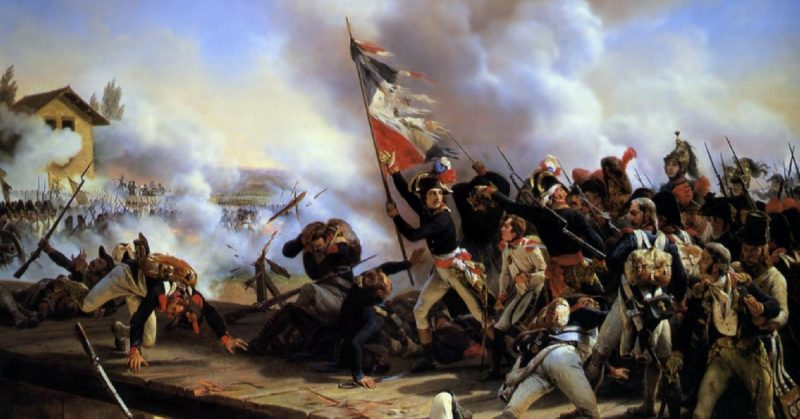The wars fought by Napoleon Bonaparte were like nothing that had ever come before. His armies were vast in scale and constant in their activity, waging war across Europe and beyond. To manage such vast forces, he relied on a wide range of people and mechanisms to keep the military machine moving.
Breaking the Republican Rules
Napoleon rose to power as the head of the post-revolutionary French Republic. Even before he destroyed the Republic by making himself emperor, he broke its fundamental rules to support his running of the army.
Under the principles of the republic, the authoritarian strength of the French monarchy was broken by separating the roles of head of state and commander-in-chief. On his accession to power, Napoleon combined these roles, and never again sought to separate them. Leading both the country and the army allowed him to bring in measures necessary to support his wars and the forces that fought them. Disputes between the military and the civilian government came to an end, as the two were joined in one man.
The Ministry of War
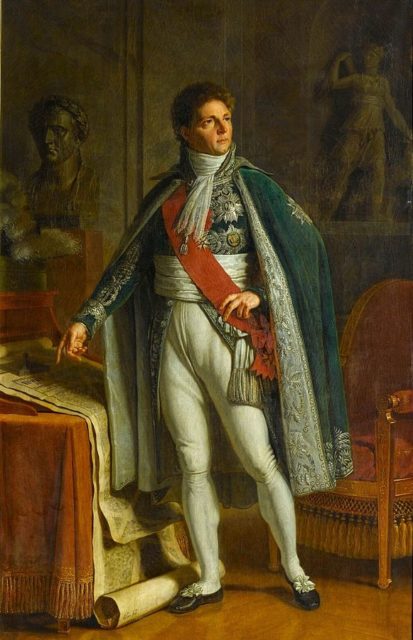
The civilian Ministry of War was the bureaucracy that kept the armies in the field, doing the management necessary to run any large organization. From 1802 it was divided into two parts – the Ministry of War and the Ministry of War Administration.
The Ministry of War dealt with the more directly military aspects of managing the army, including recruitment, pay, promotions, and troop movements. The Ministry of War Administration took over commissariat duties such as providing food, arranging transport, and setting up hospitals.
These two ministries had a huge staff for the time, rising from 500 employees in 1802 to 1500 in 1814.
Military Divisions
In 1791, France had been divided geographically into 23 military divisions, a system Napoleon kept in place and expanded as he occupied neighboring territory, reaching 32 divisions in 1811, and another six in the Kingdom of Italy. Each territory was centered on a major town and run by a divisional general, with resident officers in the area. They dealt with local military matters, including recruitment.
The Officer Corps
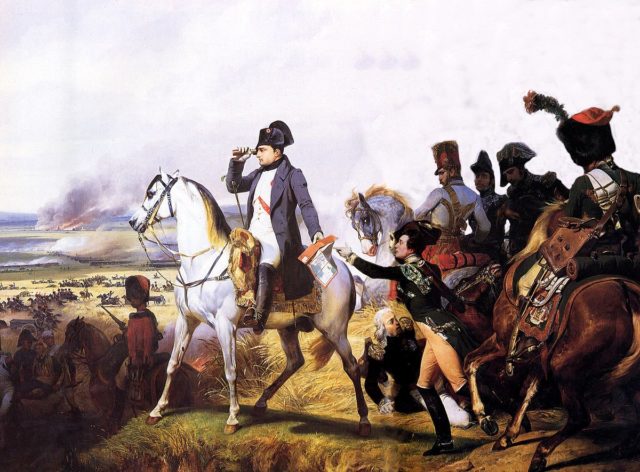
As in any army, the officer corps played a vital role in providing leadership and organization. Napoleon’s was an unusual mixture of traditional and new elements.
Many aristocrats, the traditional officer class, were among the generals serving under Napoleon – more than three-quarters of generals had served in the pre-republican army, and between 20% and 30% of generals were titled nobles, the proportion depending upon the point in the empire’s history. But many were also of common origin, coming from the families of laborers and domestic servants.
The wider officer corps was much less dominated by the old nobility, with most officers coming from middle-class backgrounds and families of small landowners. Intelligence and education were important in Napoleon’s officer corps, and he was willing to mix the old guard with humble soldiers to get the best.
Promotion
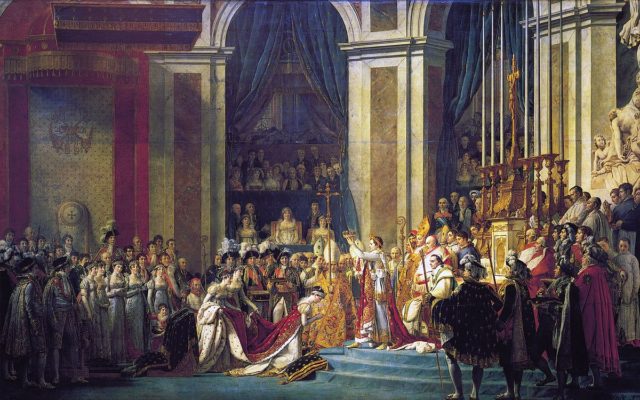
Under the Republic, three factors had played into promotions – talent, merit, and election by the troops. Napoleon did away with this last criteria, while keeping the first two.
He kept tight control not only over the criteria for promotion but over many of the individual promotions. He personally picked all the generals and corps leaders, as well as a third of the company-grade officers.
Courage and length of service were the theoretical requirements for promotion. However, Napoleon’s emphasis on education and sharp thinking among commanders meant that he primarily scouted among the upper ranks of society for his top officers, as they were more likely to have had access to formal education.
Honor
By adopting honor as the central moral principle of his army, Napoleon shifted away from the emphasis on republican virtue and back to a principle that would have seemed familiar to the old monarchy. Talk of honor placed an emphasis on glory, courage and personal achievement, rather than the line-towing obedience and egalitarian patriotism of the Republicans.
Great warriors past and present were celebrated, from Joan of Arc to Napoleon’s own marshals. This allowed Napoleon to build a military culture suitable for men of ambition, and that encouraged the sort of smart, courageous behavior he believed would win wars.
Recruitment Sources
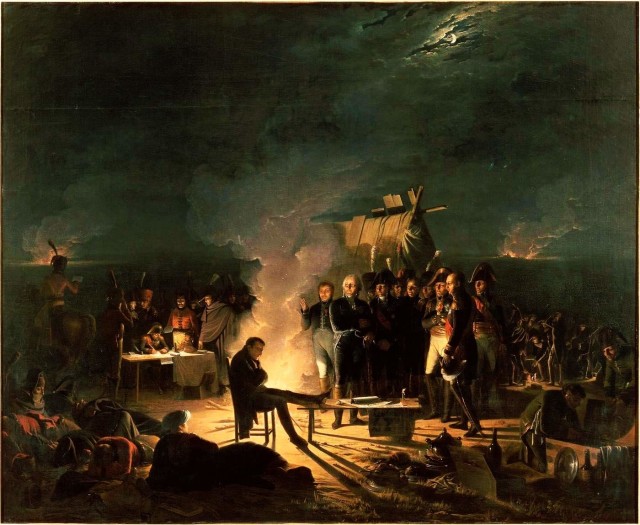
Napoleon’s government used three sources of recruitment to fill the army – long-serving regulars, volunteers, and conscripts. Volunteering for military service had gained prestige thanks to the revolution and its emphasis on patriotic virtue, and volunteers mostly came from the peasantry and other lower classes.
Conscription, which republican France introduced to modern warfare for the first time, allowed the government to recruit almost any able-bodied male of fighting age in times of national emergency, which Napoleon himself could define. Though legal amendments of 1799, 1808 and 1811 created and clarified exemptions, conscription effectively allowed Napoleon to raise all the men he needed.
Recruitment Oversight
Recruitment was theoretically voted in by the legislative assembly until 1805 when this was transferred to the senate. These central bodies assigned recruitment requirements to the individual departments and municipalities, the local government areas of post-revolutionary France, making the localities responsible for recruiting their own citizens.
Negligence, abuses and inefficiencies led Napoleon to gradually bring recruitment under central control. Prefects and sub-prefects, overseen by the central government, arranged the local drawing of lots to see who would be called up. Recruitment boards, founded under a law of August 1802, also roamed the country, helping to assert the government’s desires. Dominated by military officers, they made recruitment more effective.
Provisioning
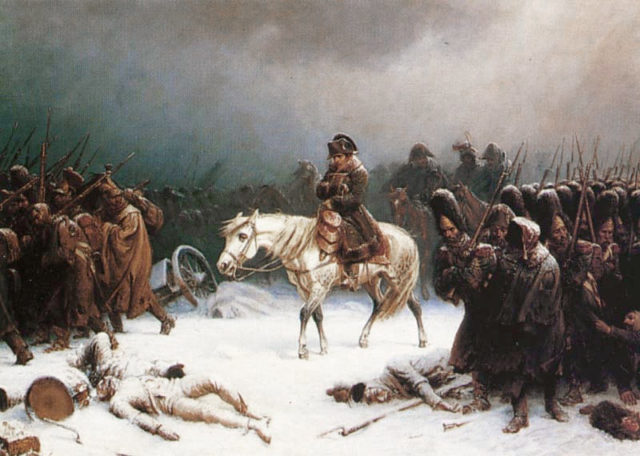
The supply of provisions to the army was overseen by the Ministry of War Administration. Like many armies before and since, from Marlborough on the Danube to the modern American military, they used specialist contractors to get the job done, such as Vanlerberghe in 1805. These contractors brought commercial and organizational skills to the acquisition and transport of supplies to armies spread across the length of a continent.
Sources:
- Geoffrey Ellis (1991), The Napoleonic Empire.
- Matthew D. Zarzeczny (2013), Meteors that Enlighten the Earth: Napoleon and the Cult of Great Men.
